New ACC schedule format: FSU's 3 primary foes are UM, Clemson, Syracuse
The ACC has announced plans to modify its scheduling format for football going forward, and each school will now have three primary opponents -- who they play each year -- with the other 10 ACC schools rotating in twice during four-year cycles.
For Florida State, that means the Seminoles will now face Miami, Clemson and Syracuse every season. There will no longer be Atlantic and Coastal divisions.
Stay connected to all of your favorite FSU Sports Coverage!
*** Get the FREE Warchant App in the Apple Store or on Google Play
*** Subscribe to our YouTube Channel for fresh new videos every day
*** Sign up for our exclusive Newsletter to never miss important FSU news
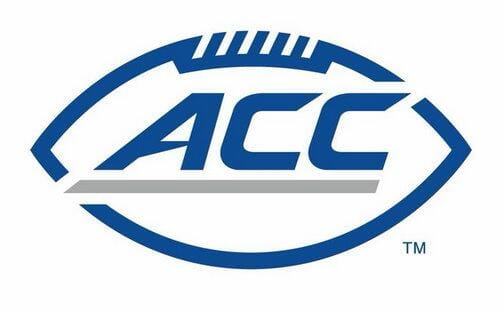
Here are FSU's ACC opponents for the four seasons beginning with 2023:
2023
Home – Duke, Miami, Syracuse, Virginia Tech
Away – Boston College, Clemson, Pitt, Wake Forest
2024
Home – Boston College, Clemson, North Carolina, NC State
Away – Georgia Tech, Miami, Syracuse, Virginia
2025
Home – Miami, Pitt, Syracuse, Wake Forest;
Away – Clemson, Duke, Louisville, Virginia Tech
2026
Home – Clemson, Georgia Tech, Louisville, Virginia;
Away – Miami, North Carolina, NC State, Syracuse
Here is the release from FSU:
The Atlantic Coast Conference will shift to a 3-5-5 scheduling format and the elimination of divisions to determine ACC Championship Game participants starting in 2023, it was announced Tuesday.
“Today’s announcement is an important change for our conference for several reasons with the primary being it allows the two best teams to meet in the championship game each season,” said Florida State Vice President and Director of Athletics Michael Alford. “The new format has advantages in many areas, including the positioning of our top teams should the college football playoff expand.”
Florida State’s three permanent annual opponents are Miami, Clemson and Syracuse, and the other five conference opponents will rotate each year. The elimination of divisions creates more frequent matchups across the conference and will result in each ACC team playing in Doak Campbell Stadium at least once by the end of the 2026 season.
“The new format means our season ticket holders will see every ACC team play in Doak Campbell Stadium over a four-year period,” said Alford. “It also allows every ACC football student-athlete to play at each ACC school every four years which was one of the goals of the plan. Our three primary opponents will allow us to maintain one of the highest television profiles in the country while also providing consistently attractive home schedules.”
With the new format, Florida State will play at Pitt for the first time since 2013 in 2023 and will play at Georgia Tech for the first time since 2015 in 2024. The Seminoles host Virginia in 2026, marking the first time the Cavaliers will play in Tallahassee since 2014.
“I’m also pleased that the four-year projection will give our supporters a better chance to make long-range plans,” said Alford.
Here is the release from the ACC:
The Atlantic Coast Conference announced Tuesday a new football scheduling model that will go into effect beginning with the 2023 season.
The new model is based on a 3-5-5 structure whereby each team will play three primary opponents annually and face the other 10 league teams twice during the four-year cycle, once at home and once on the road. The schedule allows for each team to face all 13 conference opponents home and away at least once during the four-year cycle.
The structure was adopted by the league’s athletic directors and faculty athletic representatives earlier today.
The new schedule will eliminate the Atlantic and Coastal divisions with all 14 schools competing in one division beginning in 2023. The top two teams based on conference winning percentage will compete in the Subway ACC Football Championship Game on the first Saturday in December at Bank of America Stadium in Charlotte, North Carolina. In May, the NCAA Division I Council approved the deregulation of the current rule that had limited an individual conference's autonomy to determine their football championship game participants.
The future ACC football scheduling model provides significant enhancements for our schools and conference, with the most important being our student-athletes having the opportunity to play every school both home and away over a four-year period,” said ACC Commissioner Jim Phillips, Ph.D. “We appreciate the thoughtful discussions within our membership, including the head football coaches and athletic directors. In the end, it was clear this model is in the best interest of our student-athletes, programs and fans, at this time.”
The three primary partners for each ACC team are as follows:
Boston College: Miami, Pitt, Syracuse
Clemson: Florida State, Georgia Tech, NC State
Duke: North Carolina, NC State, Wake Forest
Florida State: Clemson, Miami, Syracuse
Georgia Tech: Clemson, Louisville, Wake Forest
Louisville: Georgia Tech, Miami, Virginia
Miami: Boston College, Florida State, Louisville
North Carolina: Duke, NC State, Virginia
NC State: Clemson, Duke, North Carolina
Pitt: Boston College, Syracuse, Virginia Tech
Syracuse: Boston College, Florida State, Pitt
Virginia: Louisville, North Carolina, Virginia Tech
Virginia Tech: Pitt, Virginia, Wake Forest
Wake Forest: Duke, Georgia Tech, Virginia Tech
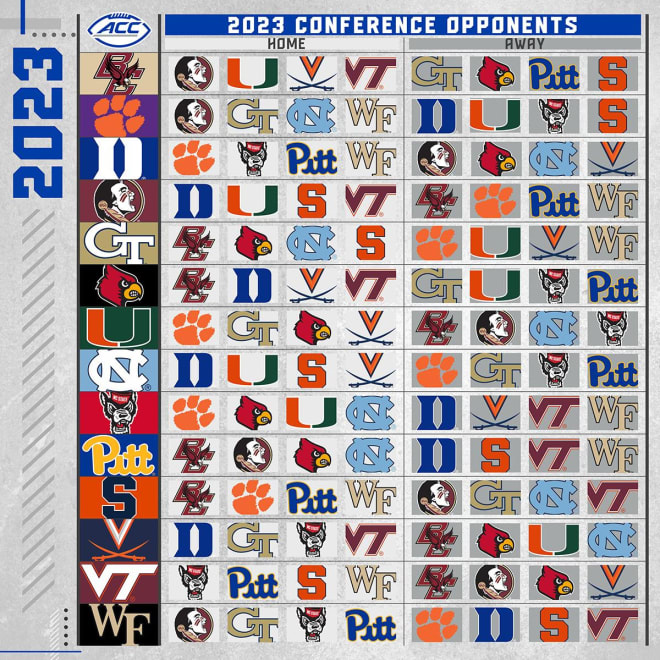
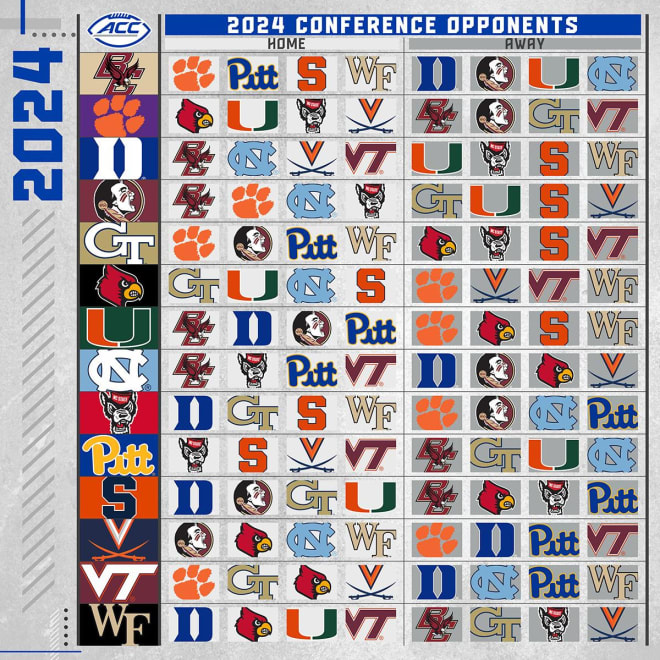
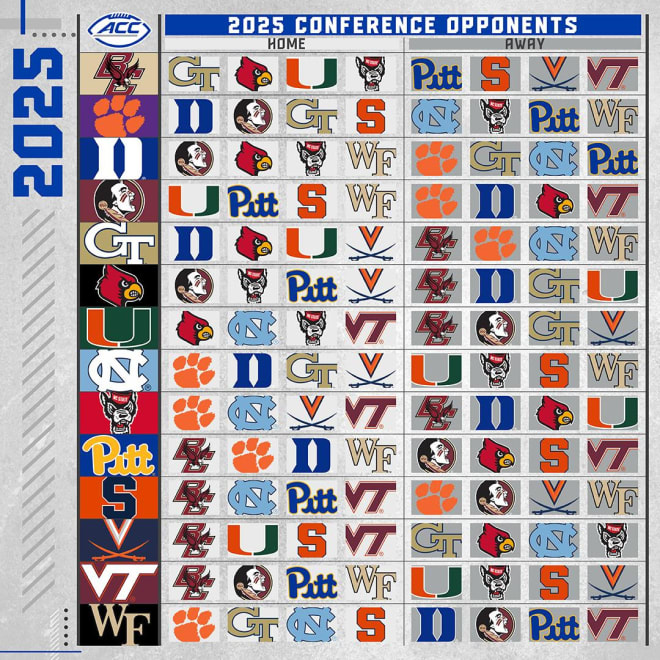
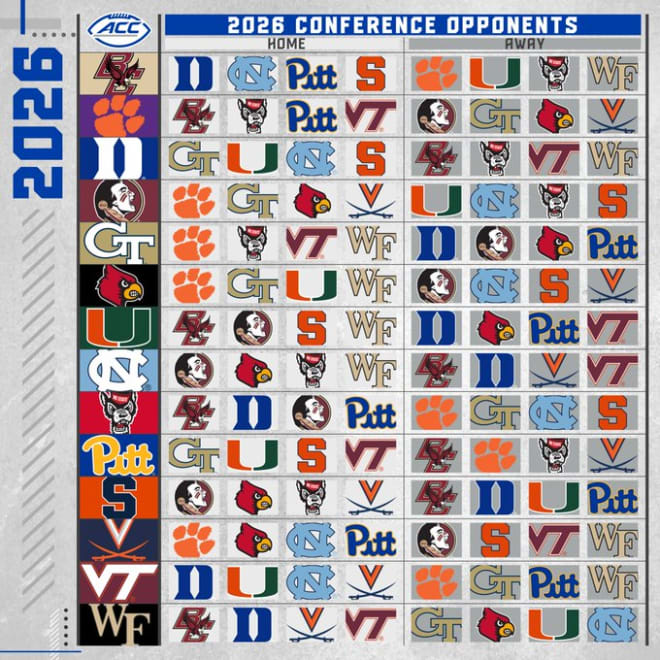
-----------------
Don't miss out on our exclusive podcasts! Subscribe Today!
*** Wake Up Warchant -- Apple | Google
*** Seminole Headlines -- Apple | Google
*** The Jeff Cameron Show -- Apple | Google
Or just search for "Warchant" on your favorite podcast provider.
----------------------------------------------------
Talk about this story with other Florida State football fans in the Tribal Council